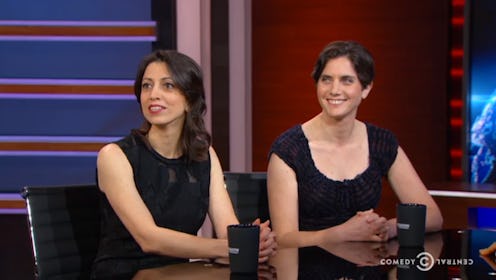News
'MaM' Filmmakers Respond To This Critique

For the most part, viewers of Making a Murderer have sympathized with its subject, Steven Avery, with some even petitioning for his release. But in recent weeks, as Avery's ex-fiancée has spoken out and other reports have shed more light on his case, the show's creators, Laura Ricciardi and Moira Demos, have faced increasing criticism. One question has been asked repeatedly: Why did the documentary fail to mention that Avery specifically requested for Teresa Halbach to come photograph his car yard? On Wednesday, Ricciardi and Demos answered viewers' questions on Twitter, and their response to this nagging question perfectly shut down anyone who alleges that they deliberately left out key information.
During the Q&A, Twitter user Hepax Legomenon, whose handle is @pizzalasagna, asked the filmmakers the dreaded question:
Why did you fail to mention that every time Avery called the Auto Magazine he always asked for it to be Teresa to meet with him.
This is what Ricciardi and Demos said in response:
Teresa was the only Auto Trader photographer who covered Manitowoc. As the only Auto Trader photog in the county, if he asked for her there is nothing suspicious about that.
This particular topic is part of the overall criticism against the series, which is that Ricciardi and Demos were biased in their depiction of the case. This gained some momentum when Ken Kratz, the prosecutor who was responsible for putting Avery in prison, accused the duo of working on behalf of the defense with the agenda to convince the public that Avery is innocent.
Kratz also provided the media with several pieces of evidence which he says the creators left out of their show. He told People in an email that on the day she was killed, Avery specifically requested for Halbach, asking her office for "that same girl who was here last time."
Ricciardi and Demos have denied these allegations of bias, and maintain that their objective was to shed light on the country's flawed justice system. Ricciardi explained to TIME:
Moira and I had no stake in the outcome of the trial. We had no interest in whether or not Steven Avery was innocent. We were there simply to document the story and look at the Halbach case not in isolation but in the context of 30 years.
Both the filmmakers and Kratz have noted that he declined to be interviewed for the documentary. Given this information, it's surprising that Katz is now supplying media outlets with information and testimony from the trial and trying to sway the public in the opposite direction.